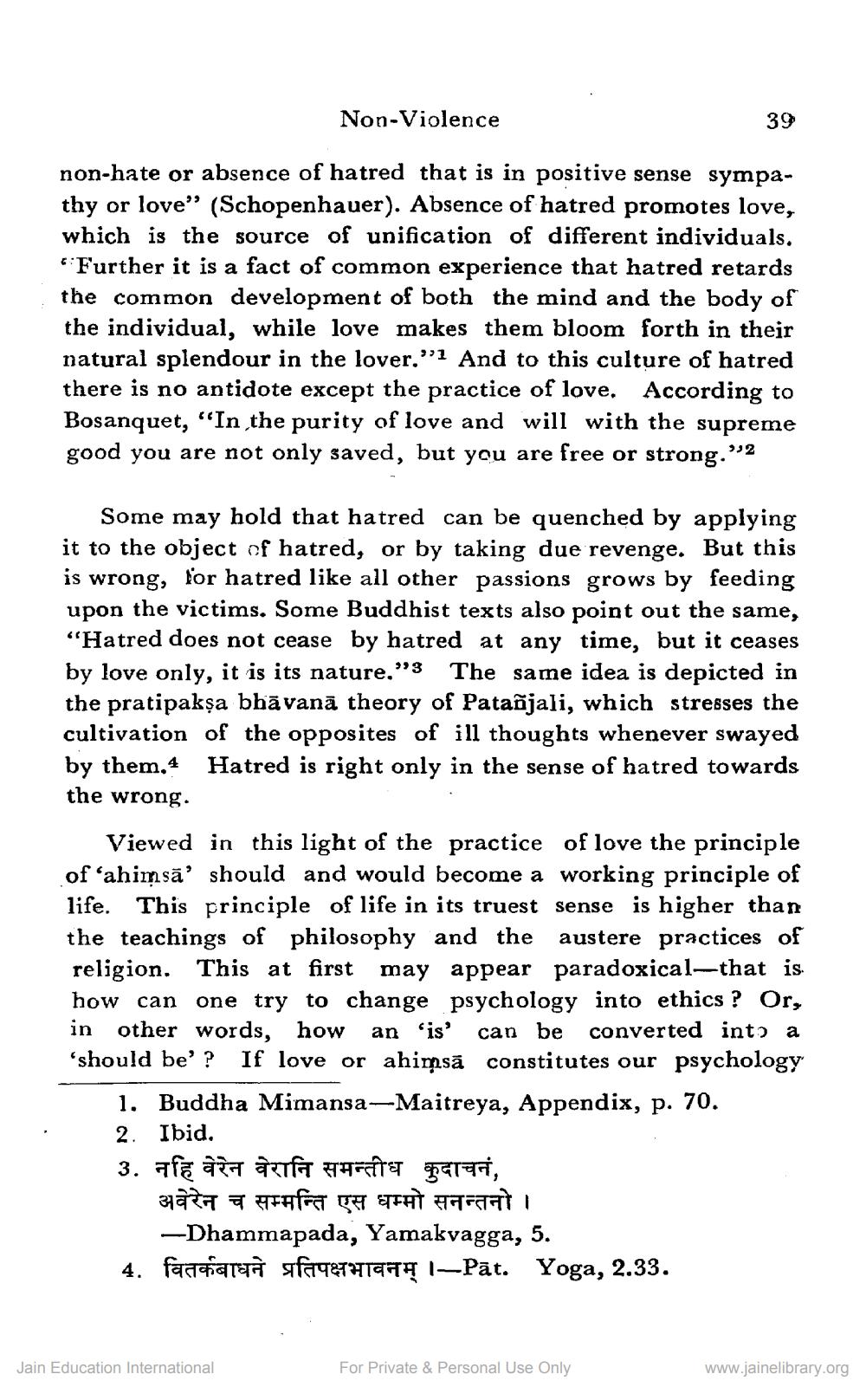________________
Non-Violence
non-hate or absence of hatred that is in positive sense sympathy or love" (Schopenhauer). Absence of hatred promotes love, which is the source of unification of different individuals. "Further it is a fact of common experience that hatred retards the common development of both the mind and the body of the individual, while love makes them bloom forth in their natural splendour in the lover." And to this culture of hatred there is no antidote except the practice of love. According to Bosanquet, "In the purity of love and will with the supreme good you are not only saved, but you are free or strong."2
Some may hold that hatred can be quenched by applying it to the object of hatred, or by taking due revenge. But this is wrong, for hatred like all other passions grows by feeding upon the victims. Some Buddhist texts also point out the same, "Hatred does not cease by hatred at any time, but it ceases by love only, it is its nature."3 The same idea is depicted in the pratipaksa bhāvanā theory of Patanjali, which stresses the cultivation of the opposites of ill thoughts whenever swayed by them.4 Hatred is right only in the sense of hatred towards the wrong.
Viewed in this light of the practice of love the principle of 'ahimsa' should and would become a working principle of life. This principle of life in its truest sense is higher than the teachings of philosophy and the austere practices of religion. This at first may appear paradoxical-that is how can one try to change psychology into ethics? Or, in other words, how an 'is' can be converted into a 'should be' ? If love or ahimsa constitutes our psychology
1. Buddha Mimansa-Maitreya, Appendix, p. 70. 2. Ibid.
3. नहि वेरेन वेरानि समन्तीध कुदाचनं,
अवेरेन च सम्मन्ति एस धम्मो सनन्तनो ।
39
—Dhammapada, Yamakvagga, 5.
4. वितर्कबाधने प्रतिपक्षभावनम् । - Pat Yoga, 2.33.
Jain Education International
For Private & Personal Use Only
www.jainelibrary.org




